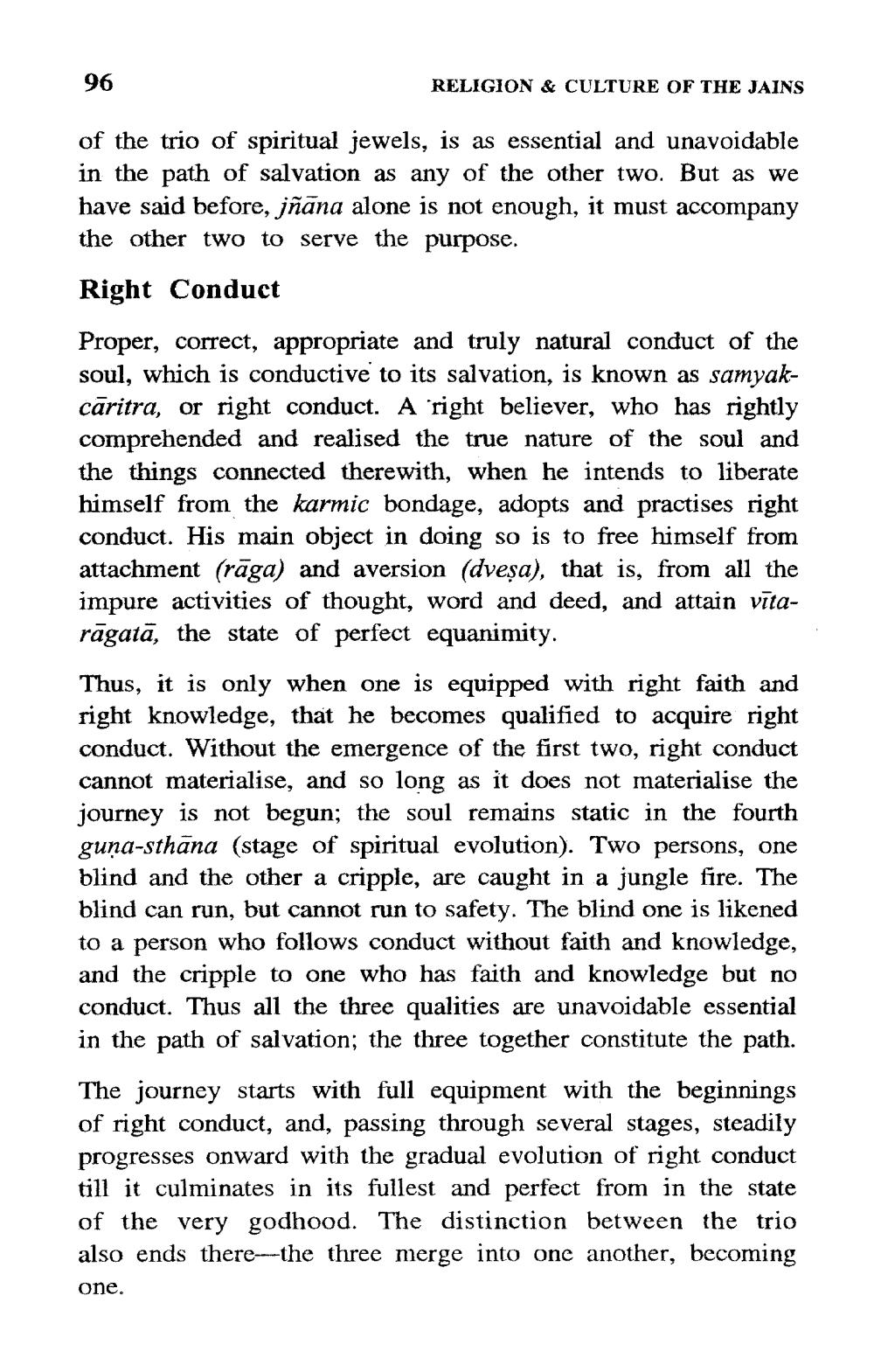________________
96
RELIGION & CULTURE OF THE JAINS
of the trio of spiritual jewels, is as essential and unavoidable in the path of salvation as any of the other two. But as we have said before, jñāna alone is not enough, it must accompany the other two to serve the purpose.
Right Conduct
Proper, correct, appropriate and truly natural conduct of the soul, which is conductive to its salvation, is known as samyakcaritra, or right conduct. A right believer, who has rightly comprehended and realised the true nature of the soul and the things connected therewith, when he intends to liberate himself from the karmic bondage, adopts and practises right conduct. His main object in doing so is to free himself from attachment (rāga) and aversion (dveṣa), that is, from all the impure activities of thought, word and deed, and attain vītarāgata, the state of perfect equanimity.
Thus, it is only when one is equipped with right faith and right knowledge, that he becomes qualified to acquire right conduct. Without the emergence of the first two, right conduct cannot materialise, and so long as it does not materialise the journey is not begun; the soul remains static in the fourth guna-sthāna (stage of spiritual evolution). Two persons, one blind and the other a cripple, are caught in a jungle fire. The blind can run, but cannot run to safety. The blind one is likened to a person who follows conduct without faith and knowledge, and the cripple to one who has faith and knowledge but no conduct. Thus all the three qualities are unavoidable essential in the path of salvation; the three together constitute the path.
The journey starts with full equipment with the beginnings of right conduct, and, passing through several stages, steadily progresses onward with the gradual evolution of right conduct till it culminates in its fullest and perfect from in the state of the very godhood. The distinction between the trio also ends there--the three merge into one another, becoming
one.




